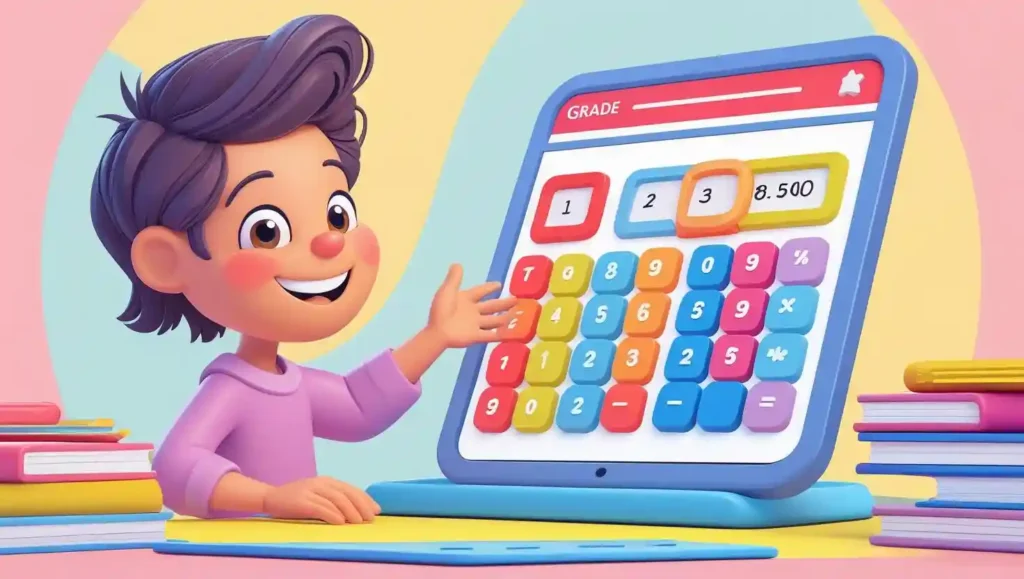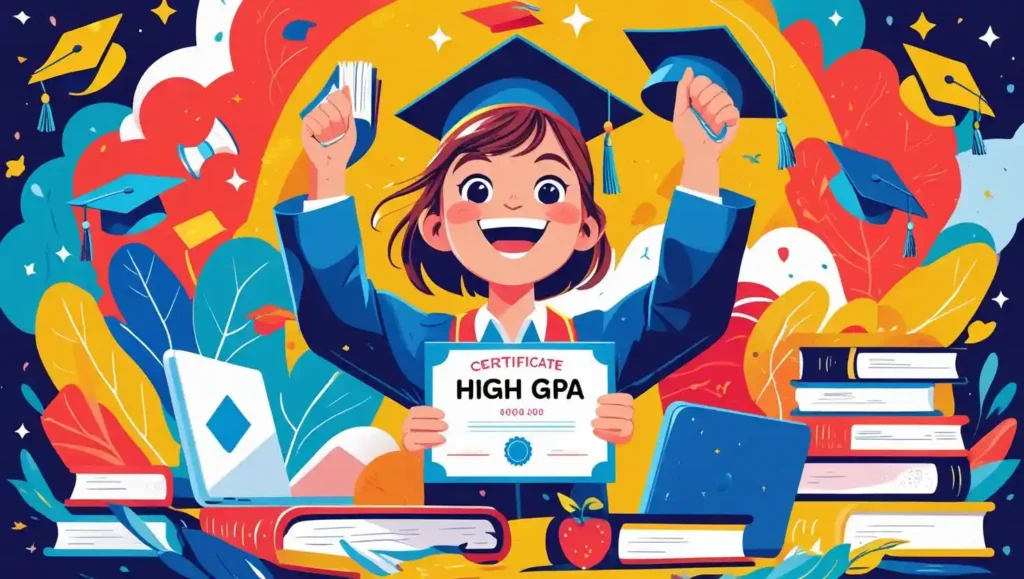The Impact of Repeated Courses on GPA & CGPA: A Complete Guide
Impact of Repeated Courses on GPA and CGPA on academic life is full of challenges, and one of the most common concerns for students is how their performance in courses affects their Grade Point Average (GPA) and Cumulative Grade Point Average (CGPA). Many universities allow students to repeat courses they have previously failed or scored poorly in. However, the big question students often ask is:
👉 “How does repeating a course affect my GPA and CGPA?”
The answer depends on your university’s grading policies, but understanding the general principles can help you make smarter academic decisions. In this article, we will break down the impact of repeated courses on GPA and CGPA, why students choose to repeat courses, university policies, potential benefits, and common misconceptions.
1. What Are GPA and CGPA?
Before we dive into repeated courses, let’s quickly revisit the basics:
GPA (Grade Point Average):
GPA is the average of grades you earn in your current semester or a set of courses. It reflects your academic performance over a short duration.CGPA (Cumulative Grade Point Average):
CGPA is the overall average of all grades across semesters. It is a long-term measure of academic performance and often the number universities or employers look at first.
2. Why Do Students Repeat Courses?
Students may choose to repeat a course for several reasons:
Poor Grade or Failure – Failing a core subject or scoring very low impacts GPA/CGPA heavily.
Core Requirement – Some programs require a minimum grade (e.g., a “C” or higher) to progress.
Improving GPA/CGPA – Students repeat a course to raise their overall standing.
Graduate/Scholarship Requirements – Universities abroad or scholarship programs may require a higher GPA, pushing students to retake low-scoring subjects.
Impact of Repeated Courses on GPA and CGPA is very crucial for the students. If you think about the GPA and CGPA grading system , it is different in different countries. You can use our calculators too calculate your GPA or CGPA easily.

1. How Repeating a Course Affects GPA
Impact of Repeated Courses on GPA and CGPA can be different based on different rules and factors defined by the organizations.
Here’s where it gets interesting. Universities have different rules, but the most common scenarios are:
✅ 1. Grade Replacement Policy
When you repeat a course, the new grade replaces the old one in GPA calculation.
Example: You score D (1.0 points) in a course worth 3 credits. GPA contribution = 3.0 points total.
If you repeat and score B (3.0 points), the old “D” is removed, and GPA is recalculated with the new “B.”
This policy benefits students the most because the poor grade no longer drags GPA down.
✅ 2. Average of Both Grades
Some universities average both attempts instead of replacing.
Example: First attempt D (1.0), second attempt B (3.0). Final grade for GPA = 2.0 (C).
This still improves GPA but not as much as full replacement.
✅ 3. Both Grades Count Separately
In stricter systems, both grades remain in GPA calculation.
Example: You earn a D (1.0) and later a B (3.0). Both grades are included in the transcript and GPA calculation.
This makes improvement slower but still better than leaving the original D.
2. How Repeating a Course Affects CGPA
Since CGPA is cumulative, repeated courses have long-term implications:
Replacement Policy – The poor grade is erased, and CGPA rises significantly.
Average or Both Grades Count – CGPA still improves, but more gradually.
Maximum Attempt Limit – Some universities allow only 1–2 repeats; otherwise, the original grade stands in CGPA forever.
👉 In short: CGPA will always benefit from repeated courses, but the extent depends on your institution’s rules.
3. Example Calculation
Suppose you took 4 courses (each 3 credits):
Course A = B (3.0)
Course B = C (2.0)
Course C = D (1.0)
Course D = A (4.0)
Initial GPA/CGPA:
(3+2+1+4)÷4=2.5(3 + 2 + 1 + 4) ÷ 4 = 2.5(3+2+1+4)÷4=2.5
Now, you repeat Course C (D → A):
If Replacement Policy: GPA = (3+2+4+4)÷4=3.25(3 + 2 + 4 + 4) ÷ 4 = 3.25(3+2+4+4)÷4=3.25
If Averaging: GPA = (3+2+(1+4)/2+4)÷4=2.875(3 + 2 + (1+4)/2 + 4) ÷ 4 = 2.875(3+2+(1+4)/2+4)÷4=2.875
If Both Grades Count: GPA = (3+2+1+4+4)÷5=2.8(3 + 2 + 1 + 4 + 4) ÷ 5 = 2.8(3+2+1+4+4)÷5=2.8
👉 Clearly, replacement policy gives the biggest boost.
4. Pros of Repeating Courses
✔️ Significant GPA/CGPA improvement (under replacement policy).
✔️ Strengthens transcript when applying to grad schools.
✔️ Helps meet minimum grade requirements.
✔️ Builds confidence in difficult subjects.
4. Cons of Repeating Courses
❌ Takes additional time and effort.
❌ Delays graduation if many repeats are needed.
❌ Tuition costs increase.
❌ Some universities limit how many times you can repeat.
❌ Both grades may still appear on transcript (even if excluded from GPA).
5. Common Misconceptions
“Repeating automatically erases my bad grade.”
Not always! Some universities still keep both grades.
“Repeating one course will drastically improve my CGPA.”
True only if replacement applies and the course carries heavy credits.
“Employers don’t see failed courses if repeated.”
Many transcripts list both attempts. Employers/universities may still notice.
6.Tips Before Repeating a Course
✅ Check your university’s repeat policy in the student handbook.
✅ Prioritize core subjects or those with the lowest grades.
✅ Consider the credit weight—repeating a high-credit course boosts GPA more.
✅ Seek tutoring or academic support before repeating.
✅ Plan wisely; don’t overload your semester with repeats.
7. Final Thoughts
Impact of Repeated Courses on GPA and CGPA is bigger so repeating courses can be a powerful tool to improve both GPA and CGPA, especially under grade replacement policies. However, the impact varies depending on institutional rules. While it can open doors to scholarships, international admissions, and job opportunities, it also comes with extra time and cost.
The key takeaway is simple:
👉 If your university allows grade replacement, repeating courses is often worth it.
👉 If averaging or dual counting applies, weigh the effort vs. reward carefully.
However Impact of Repeated Courses on GPA and CGPA can be improved if you follow the right path for that. Remember, GPA and CGPA are important, but they are not the only measure of academic success. Skills, projects, and experiences also matter in your career journey.


